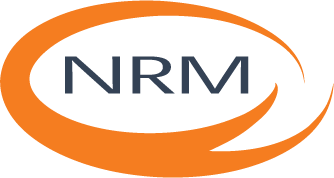
Generous incentives for refrigeration upgrades are available, but you must act now because funding is limited and going fast.
While the incentive programs offered by Mass Save are first-come, first-serve, the process to qualify couldn't be easier. Why? Because NRM handles the process for you every step of the way.
"I’m extremely happy with NRM’s controls and would recommend them to any other business owner on the island that has walk-in coolers. Brian, their installer, was very helpful throughout the whole process and showed me how I would be saving energy. I’ve had the controls for 14 years, and look forward to another 14 of saving money."
— John Averill, Owner, Vineyard Cash & Carry
Act Now to Secure Your Project Funds
Give us a call now at 800-377-5439 or submit this short form and we'll reach out to you
Generous incentives for refrigeration upgrades are available, but you must act now because funding is limited and going fast.
While the incentive programs offered by Mass Save are first-come, first-serve, the process to qualify couldn't be easier. Why? Because NRM handles the process for you every step of the way.
The idea of spending what little time you have left over when you’re not handling a dozen other things during your workday filling out forms applying for incentives and rebates from your utility provider probably sounds awful.
Maybe, you’ve even heard of the Mass Save program before, and was curious about learning what exactly it is, or how it might help your business, but didn’t know where to start. Or, again, didn’t have the free time to do find out more.
And finding out of your walk-in cooler, walk-in freezer, cold room, or large refrigerated facility is eligible for the energy-efficiency programs that provide incentives to decrease (and in some cases, eliminate) up-front costs for local businesses does take some effort. It requires measuring cold space dimensions, analyzing current operations and temperatures, submitting verifiable savings projections, and then successfully installing the energy-savings measures.
Fortunately, NRM handles every step of that process.
It starts with scheduling a no-obligation assessment of your refrigeration system, NRM submitting all of the necessary paperwork, and ends with licensed, NRM technicians installing your turnkey, retrofit solution. And with over 50,000 successful installations to-date, you’ll be able to see why the sponsors of Mass Save trust NRM as the exclusive refrigeration contractor of the program.
Why does Mass Save offer these incentives? Don’t they make more money the more energy I use?
With demand continuing to grow, your utility provider recognizes they need to “buy back” electricity from their commercial customers with smaller energy footprints and divert it to larger ones who really need it. And in states like Massachusetts, where there are fewer and fewer ways for the utility companies to generate new electricity, they’re looking to get creative with their strategies to solve these energy issues.
But, also, most states have adopted laws to get citizens and companies to use less energy as it is cheaper to get consumers to use less energy than to build a new power plant which no one wants near them. Utilities are tasked with collecting this on every utility bill based on usage. It may be a line item shown as “public benefit charge” or “energy conservation charge.” This money accumulates and is used to fund the conservation programs as incentives to pay for energy efficient lights or other equipment.
Since it is available for all ratepayers, it is a great way to fund energy efficiency upgrades that reduce the utility bill, so take advantage of this to get some of your money back.
"I’m extremely happy with NRM’s controls and would recommend them to any other business owner on the island that has walk-in coolers. Brian, their installer, was very helpful throughout the whole process and showed me how I would be saving energy. I’ve had the controls for 14 years, and look forward to another 14 of saving money."
— John Averill, Owner, Vineyard Cash & Carry
